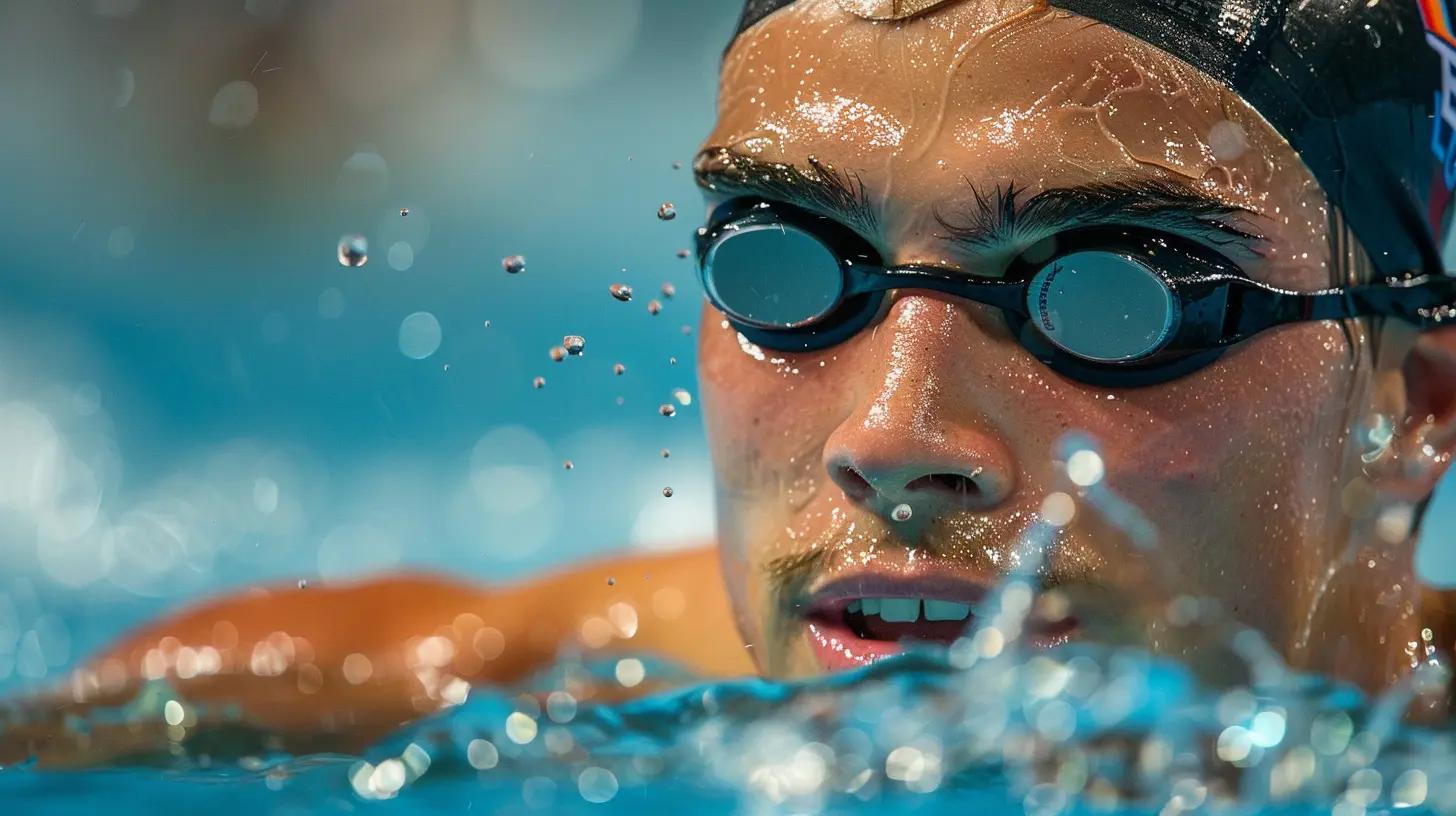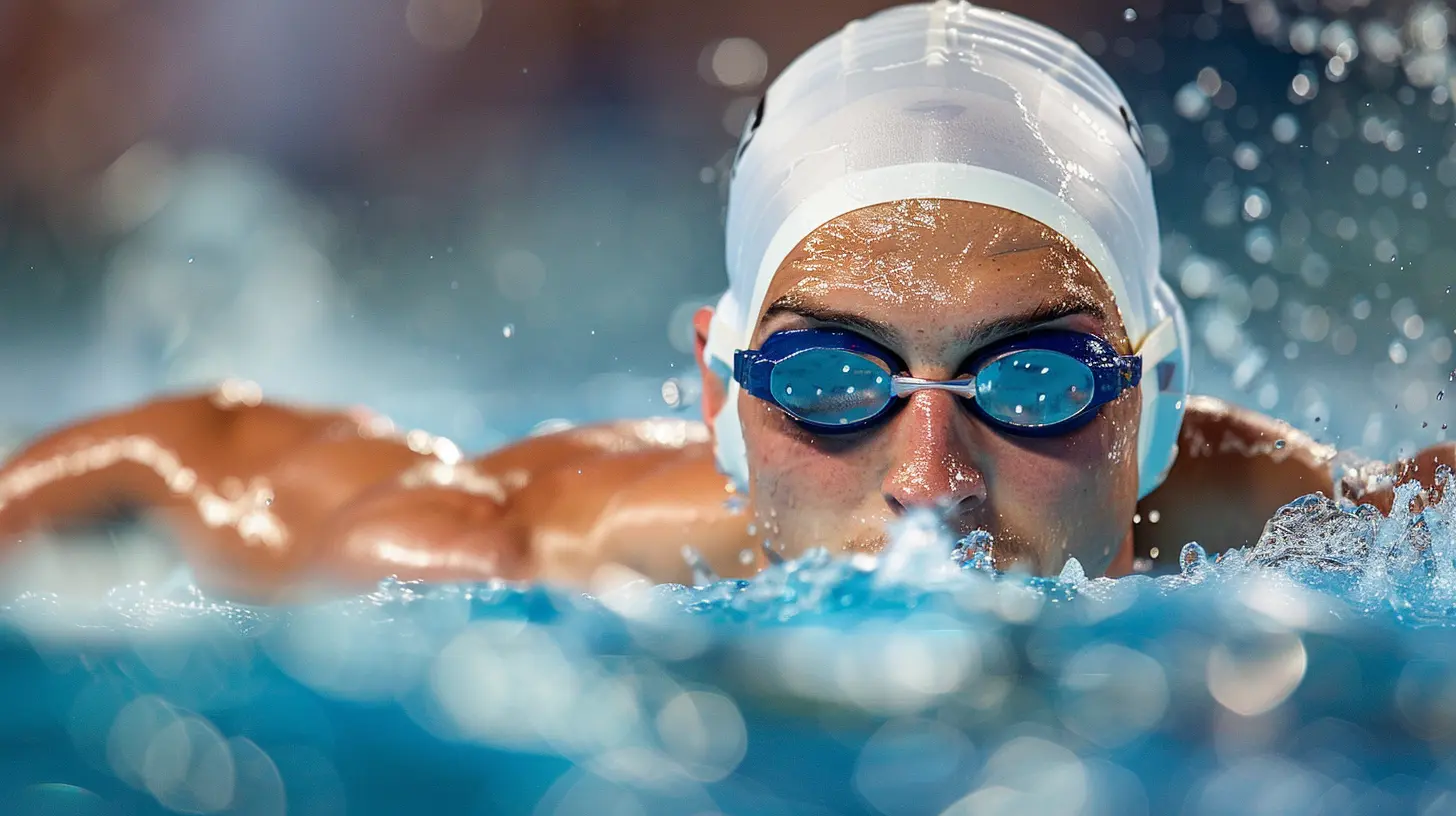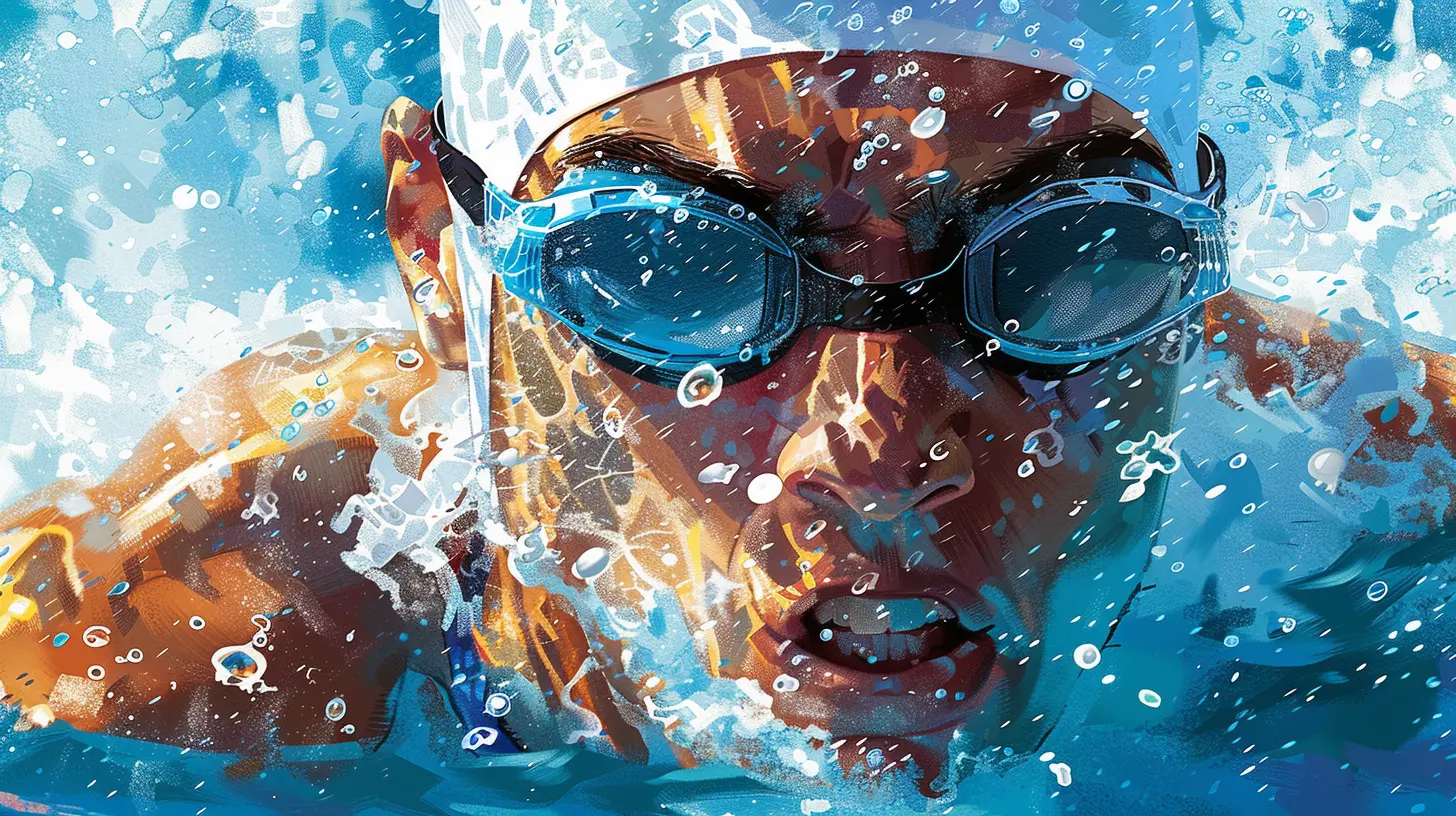22 April 2025
Competitive swimming isn’t just about having the fastest stroke or the strongest muscles. Sure, physical strength plays a huge role, but there’s another side of the sport that often gets overlooked—the mental side. Swimming is as much a mental game as it is a physical one. Whether you're a seasoned competitor or just starting, understanding how to stay focused and relaxed in the pool could be the difference between touching the wall first or coming up short.
In this article, we'll dive deep into the mental side of competitive swimming, exploring why it’s just as important as your physical training, and how you can master it to perform at your best.
Why Mental Strength is Key in Competitive Swimming
When you're standing behind those blocks, heart racing and palms sweating, it’s easy to feel overwhelmed. You’ve put in the hours, trained your body, and perfected your technique, but what happens when self-doubt starts creeping in? That’s where your mental strength comes into play.Competitive swimming is a sport where races can be won or lost by fractions of a second. Your mindset can be the secret weapon that pushes you beyond your limits—or the invisible anchor that holds you back.
The Mental Pressure of Swimming
Think about it: in swimming, you’re essentially racing against the clock—against yourself. Unlike team sports, where you can rely on teammates to help you out, swimming is mostly an individual battle. Every stroke, every breath, every turn comes down to you. That kind of pressure can either make you or break you.Plus, the environment in which swimmers compete is unique. You’re not just dealing with the mental stress of the race, but also the physical isolation of being underwater. It’s just you, the water, and your thoughts. There are no audible cheers from the crowd, no encouraging words from your coach. It’s quiet, and that silence can sometimes be deafening.
The Link Between Mental and Physical Performance
Here’s the kicker: your mind and body are closely connected. If you're mentally scattered or anxious, your body won't perform at its peak. Ever notice how hard it is to swim when you’re feeling nervous or unfocused? Your strokes feel off, your breathing becomes erratic, and your speed drops.On the flip side, when your mind is sharp and calm, your body responds in kind. You move more efficiently through the water, your strokes are smooth, and you’re able to maintain that coveted rhythm. Everything just clicks. 
Staying Focused in the Pool
Focus is everything in swimming. When you’re in the water, you need to shut out distractions and zero in on your task. But how exactly do you stay focused when your brain wants to go in a thousand different directions?Visualization: See it Before You Swim It
One of the most powerful tools swimmers use is visualization. This involves mentally rehearsing your race in your head before you even hit the pool. Picture yourself diving off the blocks, your body cutting through the water, each stroke being powerful and precise, and finally reaching the wall in record time.Visualization helps you create a mental blueprint of the perfect swim. By repeatedly imagining yourself succeeding, you’re training your brain to focus on the positive outcome. You’re essentially building muscle memory in your mind. So, when race day comes, your brain already knows what to do.
Break the Race into Smaller Chunks
Another great way to stay focused is by breaking the race down into smaller, more manageable parts. Instead of thinking about the entire 200-meter freestyle, focus on the first 50 meters, then the next 50, and so on. By doing this, you prevent your mind from becoming overwhelmed by the enormity of the task.It’s like eating an elephant—one bite at a time. Breaking the race into smaller parts allows you to be present in the moment and nail each section before moving on to the next.
Have a Pre-Race Routine
Routines aren’t just for comfort—they help prime your brain for focus. If you watch elite swimmers, you'll notice they all have their little quirks before a race: some shake their arms, others do breathing exercises, some listen to specific songs. These aren’t random habits—they're mental cues that signal to the brain, "It’s go time."Having your own pre-race routine can be a game-changer. It doesn’t have to be complicated. Maybe it's taking a few deep breaths, stretching in a specific way, or replaying your race strategy in your head. It’s all about getting your mind in the zone.
Staying Relaxed Under Pressure
Swimming under pressure is tough. You’re up against the clock, your competitors, and your own nerves. However, staying calm is crucial if you want to perform at your best. Here’s how to keep those jitters in check.The Power of Deep Breathing
One of the quickest ways to calm your mind is through deep breathing. When you're nervous, your breathing tends to become shallow, which can increase feelings of stress and anxiety. Taking deep, controlled breaths helps reset your nervous system and slows down your racing heart.Before a race, try this: inhale deeply through your nose for four counts, hold it for four counts, and exhale slowly through your mouth for four counts. Repeat this a few times, and you’ll feel your body relax almost instantly.
Breathing exercises aren’t just for the moments before a race, though. You can incorporate them into your everyday training, so staying calm becomes second nature.
Embrace the Nerves
Here’s an unconventional tip: don’t fight your nerves—embrace them. Feeling a little nervous before a race is actually a good thing. It means you care, and your body is preparing for battle. The trick is not to let those nerves overwhelm you.Instead of seeing nerves as a sign of weakness, view them as energy you can channel into your race. It’s like turning fear into fuel. The next time you feel those butterflies in your stomach, remind yourself that they aren’t there to sabotage you—they're there to help.
Practice Under Pressure
One of the best ways to stay relaxed in high-pressure situations is by practicing under similar conditions. In other words, simulate race-day pressure during your training sessions. Try doing mock races with your teammates, or time yourself on your own. The more familiar you are with the feeling of being under pressure, the easier it will be to stay calm when it really counts.Think of it like building a mental muscle—the more you practice staying calm under pressure, the stronger and more resilient that muscle becomes.
Overcoming Mental Blocks
Even the best swimmers face mental blocks from time to time. Maybe you’ve hit a plateau, or you’re struggling to get over a bad race. Whatever the case, mental blocks can be frustrating. But they’re not impossible to overcome.Focus on the Process, Not the Outcome
One of the reasons swimmers get stuck in mental ruts is because they become too focused on the outcome—winning the race, hitting a personal best, or beating a rival. While it’s great to have goals, becoming obsessed with the end result can lead to performance anxiety.Instead, try shifting your focus to the process. Focus on executing your technique, nailing your turns, and maintaining your rhythm. When you concentrate on what you can control, the outcome will take care of itself.
Positive Self-Talk: Be Your Own Coach
Your internal dialogue can make or break your performance. If you're constantly telling yourself, “I’m not fast enough,” or “I’m going to mess this up,” guess what? You probably will.Positive self-talk isn’t about being delusional or overly optimistic—it’s about being constructive. Instead of focusing on what you can’t do, focus on what you can. Replace negative thoughts with affirmations like, “I’m prepared,” “I’ve trained for this,” or “I’m getting stronger with every stroke.”
Being your own cheerleader isn't just about feeling good—it’s about creating a mental environment where you can thrive.


